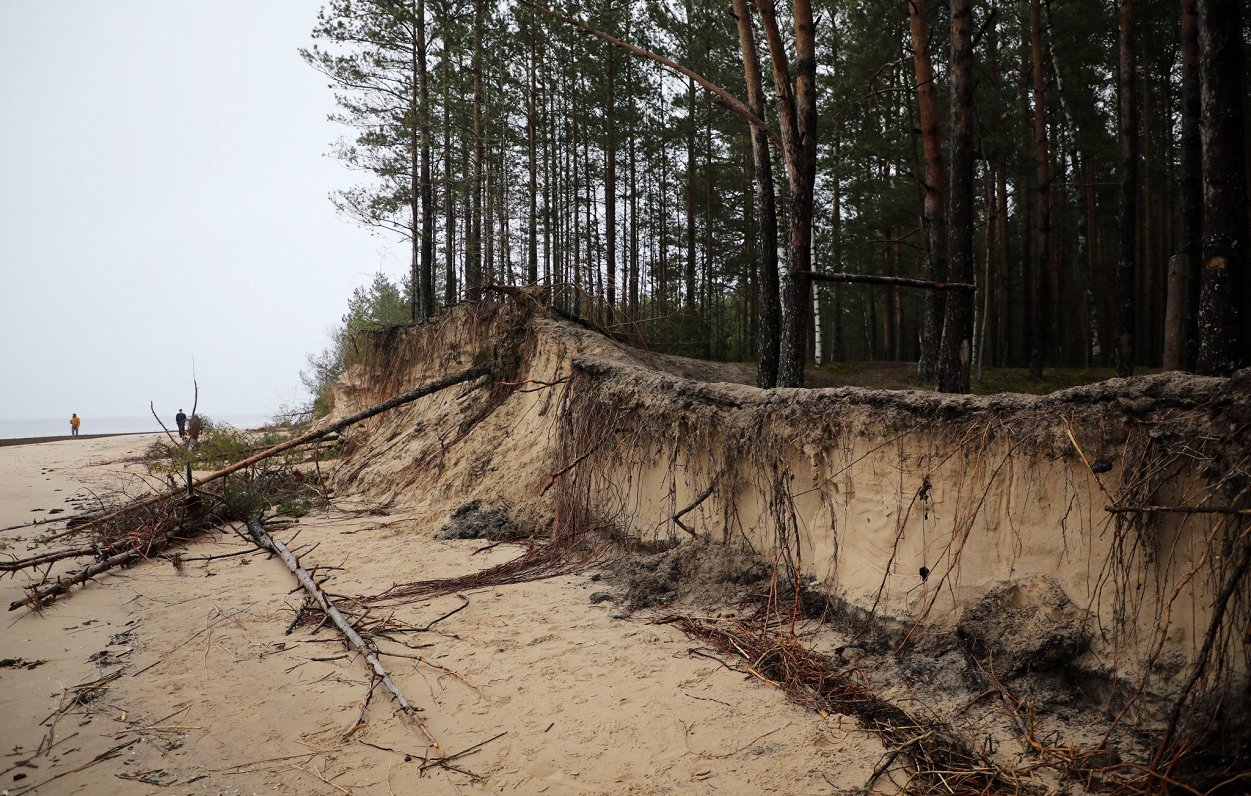Analysis of the data so far indicates a relatively small rise in sea level - comparing the average values of the 1961-1990 and 1991-2020 climatic norm periods, sea level in Latvia has risen by about one and a half centimetres. Given the expected acceleration of climate change in the 21st century, sea level changes are expected to become more rapid.
By 2100, the average sea level in Latvia is projected to rise by 32.6 centimeters in the event of minor climate change and by 50.3 centimeters in the event of major change.
All climate change models point to a retreat of the coastline, only the projected magnitude of retreat differs. Shoreline retreat of up to 113 meters is predicted for major climate change in Saulkrasti and Mazirbe, and 40 meters for Klapkalnciems.
Shoreline changes are influenced by the coastal slope and the steepness of the beach, so where erosion has historically been observed, major future changes are not predicted. For example, in the vicinity of Jūrkalne, given the steep slope angle and the steepness of the beach, future shoreline changes are likely to be no more than 21-33 meters.
In 2100, the Latvian coastline could retreat by an average of 47 meters under minor climate change, 61 meters under moderate climate change, and 72 meters under major climate change.
The report's authors Viesturs Zandersons, Valters Žeizis, Jānis Lapinskis and Andris Vīksna stress that the future projections should be considered indicative.
The latest coastal change data is available on the Climate Change Analysis Tool here.
































